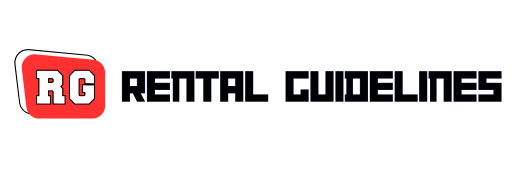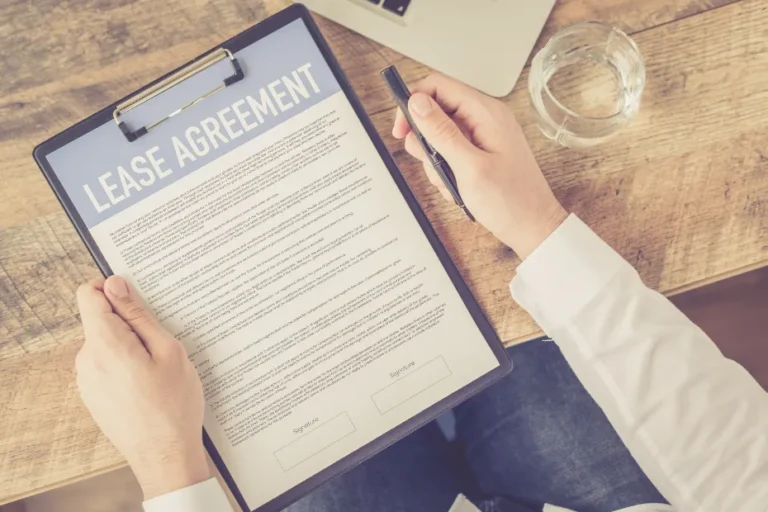Is Landlord Insurance The Same As Building Insurance?
No, landlord insurance is not the same as building insurance. Landlord insurance covers more aspects than just the building itself, such as liability coverage and rental income protection.
Building insurance typically only covers the structure itself and may not include these additional features.

What Is Landlord Insurance?
As a landlord, it’s crucial to protect your investment and rental income. And that’s where landlord insurance comes into play. But what exactly is landlord insurance? In this section, we will define landlord insurance and explore the coverage it provides.
Definition Of Landlord Insurance
Landlord insurance, also known as rental property insurance, is a specialized insurance policy designed specifically for property owners who rent out their properties. While it may seem similar to building insurance, landlord insurance is tailored to address the unique risks that landlords face.
Coverage Provided By Landlord Insurance
When you opt for landlord insurance, you can expect a wide range of coverage designed to protect your property, income, and liability as a landlord. Here’s a breakdown of the key coverage provided by landlord insurance:
- Property Damage: Landlord insurance typically covers damage to your rental property caused by events like fire, storms, vandalism, or theft. This coverage helps ensure that you’re financially protected when unexpected damage occurs.
- Loss of Rental Income: In the event of a covered loss that renders your rental property uninhabitable, landlord insurance can provide coverage for the lost rental income during the repair or rebuilding process. This coverage is invaluable for landlords who rely on rental income to cover their expenses.
- Liability Protection: As a landlord, you may face liability claims if a tenant or visitor sustains an injury on your property. Landlord insurance typically includes liability coverage to protect you in the event of lawsuits filed against you for bodily injury or property damage.
- Legal Expenses: Dealing with legal issues as a landlord can be costly. Fortunately, landlord insurance often offers coverage for legal expenses incurred due to eviction proceedings, tenant lawsuits, or other legal matters related to your rental property.
- Additional Coverage Options: Depending on your policy, you may have the option to add additional coverage such as landlord content insurance (covering belongings you provide in the rental unit) or rent guarantee insurance (covering lost rental income due to tenant default).
Related Post: How Do I Screen Tenants for Rental Property? 7 Best Tips
Exploring Building Insurance
When it comes to protecting your property investment, it’s crucial to understand the different types of insurance available.
One type of insurance that landlords often consider is building insurance. But what exactly is building insurance, and how does it differ from landlord insurance?
Definition Of Building Insurance
Building insurance, also known as property insurance or homeowners insurance, is designed to provide coverage for the physical structure of a property.
This type of insurance typically includes protection for the building itself, as well as any fixtures, fittings, and permanent structures on the property.
Building insurance covers various perils such as fire, vandalism, storms, earthquakes, and other unforeseen events that may cause damage to the property. It provides financial protection to the property owner in case of significant repairs or rebuilding after an insured event.
Coverage Provided By Building Insurance
Building insurance offers a range of coverage to safeguard your property investment. Some of the key coverage provided by building insurance includes:
- Structural Damage: Building insurance covers the cost of repairing or rebuilding the structure of the property in case of damage caused by covered perils like fire, storms, or vandalism. This includes the foundation, walls, roof, floors, and other structural elements.
- Fixtures and Fittings: This type of coverage includes protection for permanent fixtures and fittings within the property, such as kitchen cabinets, built-in appliances, plumbing, heating, and electrical systems. In the event of damage or destruction, building insurance provides compensation for the repair or replacement of these items.
- Liability Protection: Building insurance often includes liability coverage, which protects the property owner from legal and financial responsibility if someone is injured on the property. This coverage can help cover legal fees, medical expenses, and damages awarded to the injured party.
- Additional Features: Depending on the policy, building insurance may offer additional features such as coverage for outbuildings, garages, fences, and other structures on the property, as well as coverage for loss of rent or alternative accommodation if the property becomes uninhabitable due to a covered event.
It’s essential for landlords to remember that building insurance primarily focuses on protecting the physical structure of the property.
Differences Between Landlord Insurance And Building Insurance
Understanding the differences between landlord insurance and building insurance is crucial for property owners. While both insurance options provide protection for property assets, they vary in terms of coverage and scope.
In this article, we will delve into the key distinctions between these two types of insurance, including the scope of coverage, the types of properties covered, and additional coverage options.
Scope Of Coverage
The scope of coverage is where landlord insurance and building insurance diverge. Building insurance primarily covers physical structures, such as the building itself, fixtures, and permanent fittings.
It protects property owners against risks like fire, flood, theft, vandalism, and other structural damages.
On the other hand, landlord insurance provides broader coverage by protecting not only the physical structure but also the landlord’s financial interests.
This type of insurance typically includes coverage for loss of rental income, liability protection, and legal expenses related to tenant disputes. Landlord insurance takes into account the unique risks and challenges faced by property owners renting out their properties.
Types Of Properties Covered
Building insurance is typically suitable for property owners with residential properties, such as houses, apartments, and condominiums.
It ensures financial protection against various perils that may cause damage to the structure of the property. Whether the property is owner-occupied or rented out, building insurance safeguards the investment.
Landlord insurance, on the other hand, is designed explicitly for property owners who rent out their properties.
It covers a wide range of properties, including residential houses, apartments, multi-unit buildings, commercial properties, vacation rentals, and student accommodations.
Landlord insurance recognizes the unique risks associated with renting properties and offers tailored coverage options to address those risks.
Additional Coverage Options
While building insurance focuses primarily on the structure of the property, landlord insurance offers additional coverage options that cater specifically to landlords. These options provide enhanced protection and peace of mind to property owners.
Some common additional coverage options offered by landlord insurance include:
- Loss of rental income: This coverage reimburses landlords for lost rental income in the event that the property becomes uninhabitable due to a covered peril.
- Liability protection: Landlord insurance typically includes liability protection, which covers legal and medical expenses in case a tenant or visitor is injured on the property.
- Tenant default insurance: This coverage helps landlords recover lost rent in case tenants fail to pay or abruptly vacate the property.
- Legal expenses: Landlord insurance often covers legal expenses related to evictions, tenant disputes, or property damage claims.
These additional coverage options offered by landlord insurance make it a comprehensive solution for property owners who rent out their properties, providing protection beyond the physical structure itself.
Importance Of Landlord Insurance And Building Insurance
Are landlord insurance and building insurance the same thing? While they are closely related, these two types of insurance serve different purposes.
Landlord insurance protects property owners from various risks associated with renting out their property, while building insurance focuses solely on protecting the physical structure of the property itself. Let’s delve deeper into the importance of both landlord insurance and building insurance.
Protection For Property Owners
As a property owner, it is crucial to have landlord insurance. This type of insurance provides coverage for a wide range of risks that you may encounter as a landlord, such as property damage caused by tenants, loss of rental income due to tenant default, legal expenses in the event of a lawsuit filed by a tenant, and more.
With landlord insurance, you can protect yourself financially and have peace of mind knowing that you are sheltered from potential financial setbacks that may arise from renting out your property.
Mitigating Financial Risks
While building insurance is a core component of landlord insurance, it serves a unique purpose. Building insurance focuses on protecting the structure of your property from risks such as fire, storms, floods, theft, vandalism, and other hazards.
Having comprehensive building insurance in place ensures that you have adequate protection against these unforeseen events that can cause significant financial losses.
Both landlord insurance and building insurance play crucial roles in protecting property owners. By understanding the distinction between the two, you can ensure that you have the right coverage in place.
Frequently Asked Questions On Is Landlord Insurance The Same As Building Insurance
Is Landlord Insurance The Same As Building Insurance?
No, landlord insurance and building insurance are not the same. While building insurance covers damages to the structure, landlord insurance covers liability and other risks associated with renting out a property.
What Does Landlord Insurance Cover?
Landlord insurance typically covers property damage, liability, loss of rental income, and legal expenses. It protects landlords from various risks related to renting out a property.
Is Landlord Insurance Mandatory?
No, landlord insurance is not legally required. However, it is highly recommended for landlords as it provides financial protection and peace of mind in case of unexpected events or liabilities.
Do Tenants Need Their Own Insurance?
Yes, tenants should have their own insurance called “renter’s insurance”. This covers their personal belongings and liability within the rented property. Landlord insurance won’t cover the tenant’s personal belongings.
Conclusion
Ultimately, while landlord insurance and building insurance have some similarities, they are not the same.
Landlord insurance provides coverage for both the property and any liability risks associated with renting it out, while building insurance solely focuses on the physical structure of the property.
Understanding the differences between these types of insurance can help landlords protect their investments and ensure they have appropriate coverage for their specific needs.






